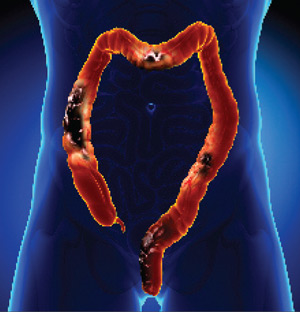USPSTF Drafts Recommendation for Aspirin Use to Prevent Heart Disease, Colorectal Cancer
 The task force found that daily aspirin could help reduce colorectal cancer risk if the patient takes it for at least 10 years. There is a growing body of evidence suggesting that aspirin could be a useful tool in preventing colorectal cancer, which is the third most common cancer in the U.S. In September, a study published in the Annals of Internal Medicine compared 10,000 colon cancer patients with 100,000 cancer-free patients. The study found that patients taking a long-term low dose of aspirin had a much lower risk of having colon cancer.
The task force found that daily aspirin could help reduce colorectal cancer risk if the patient takes it for at least 10 years. There is a growing body of evidence suggesting that aspirin could be a useful tool in preventing colorectal cancer, which is the third most common cancer in the U.S. In September, a study published in the Annals of Internal Medicine compared 10,000 colon cancer patients with 100,000 cancer-free patients. The study found that patients taking a long-term low dose of aspirin had a much lower risk of having colon cancer.
Aspirin and cardiovascular disease
The task force’s draft guideline recommends that adults aged 50 to 69 years who are at increased risk of cardiovascular disease take daily low-dose aspirin, even they have not yet had any cardiac problems. The largest benefit was seen in those who take aspirin for at least 10 years. High-risk is defined as someone with a 10% or greater increased risk of having a heart attack during the next 10 years.
Doctors have recommended the use of daily aspirin to lower cardiovascular risks for people who have already suffered heart attacks or other cardiac events. The USPSTF draft guideline has stirred some controversy over whether aspirin should be used as primary prevention for heart disease.
Criticism
Some experts are concerned that the risks of using aspirin preventively outweigh the benefits. Taking an aspirin a day has its own risks of side effects, including bleeding in the stomach and brain. Others in the medical community have reiterated that there are more reliable ways to prevent heart disease and colorectal cancer, including drugs proven to lower cholesterol and blood pressure and colonoscopies to find precancerous polyps.
The mission of the URF is to advance research for the prevention, detection and treatment of prostate cancer. Please consider an end-of-year contribution to support the URF in this effort.











